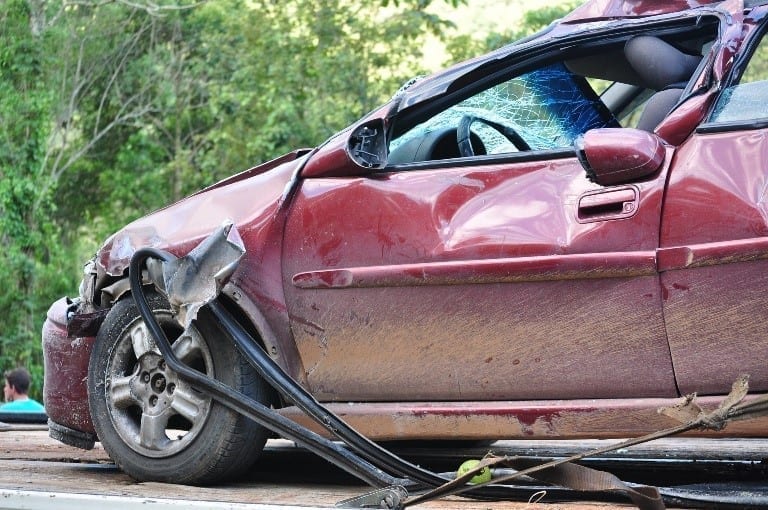In personal injury cases, you typically have to prove that someone was negligent in their duty to you and that failure caused your injury.
But what if your case involved an incident spawned by something much more than normal carelessness? Incidents that show extreme negligence and even recklessness can result in a case of gross negligence.
Gross Negligence Vs Negligence
The Federal Bar Association defines gross negligence as a “failure to perform a manifest duty in reckless disregard of the consequences to another person’s life or property.” It’s often a choice to engage in dangerous behavior that a reasonable person would know could harm others.
 How Much Is Your Settlement Worth?
How Much Is Your Settlement Worth?
Schedule a completely free, no obligation consultation with our team
Schedule Consultation
Gross negligence can straddle the line of criminal behavior. It can involve a driver who drinks alcohol and gets behind the wheel. It can involve a business owner who is told about an exposed live wire but decides not to repair it or warn customers.
It also encompasses how an at-fault party responds to the accident they caused. If care for an injured victim is withheld or delayed, gross negligence could be proven.
What Constitutes Gross Negligence?
Gross negligence involves a person or business exhibiting reckless conduct that consciously disregards or shows indifference to another’s safety or rights. In personal injury cases claiming gross negligence, the consequences of reckless actions are often severe and even life-threatening.
What Is Ordinary Negligence?
In cases involving ordinary negligence, an individual or party (e.g., a local business, corporation, or hospital) fails to show a “duty of care” to others. “Others” can include fellow motorists, customers, employees, or any sort of visitor. Usually, there’s no intent to harm anyone, but the liable individuals and/or companies have breached their duty to protect someone else from reasonably preventable dangers.
A personal injury claim can hinge on the difference in the standard of care expected from a reasonable person in a particular situation and the degree to which that care was neglected. A good example of this is when a firework display causes injuries and they are deemed liable for firework injuries that occurred.
When people get hurt due to negligence, those to blame should have to accept responsibility for every physical, emotional, and financial hardship the victim faces.
What Are the Elements of Ordinary Negligence?
When proving any sort of negligence caused your personal injury, you’ll have to show a clear link between a person or party’s actions and your accident. There are several elements used to prove that negligence played a part in an injury:
Request Your Free Consultation
"*" indicates required fields
- Duty of Care: You’ll show that defendants owed you this care and were responsible for your safety perhaps because you were a visitor or customer invited into their store or onto their property.
- Breach of Duty: That “duty of care” was neglected by the at-fault party. A failure to make a repair, drive cautiously, or clean up a spill may be grounds to file a claim for negligence.
- Factual Causation: It is your responsibility to prove this “breach of duty” caused your injury. You’ll need to provide a strong link between the hazard and your injury to win your case.
- Damages: You are also required to clearly show how the injury resulted in economic and non-economic damages that should be compensated by the at-fault party.
How Do These Types of Negligence Affect a Personal Injury Case?
In negligence cases, victims can demand support for things like hospital bills, lost wages, and travel costs. They can also hope to receive compensation for the effect an injury has on everyday life for themselves and family members.
Gross negligence and common negligence are separated by the level of carelessness and recklessness involved. Gross negligence often results in more serious consequences and more severe injuries for victims. For this reason, the stakes in a gross negligence personal injury case can go much higher.
When gross negligence is present, the compensation awards can go higher. A judge can also access punitive damages. These damages are usually included to punish the at-fault person or party for their reckless behavior and to deter them and others from making the same mistake in the future.
 How Much Is Your Settlement Worth?
How Much Is Your Settlement Worth?
Schedule a completely free, no obligation consultation with our team
Schedule Consultation
Negligence Waivers and Immunity
In certain cases, any waivers you signed beforehand can protect companies from being sued over ordinary negligence. Government employees and agencies can also have certain immunities when ordinary negligence is alleged. Personal injury cases are difficult to win under these restrictions. However, when gross negligence is proven, waivers and immunities from litigation can often get thrown out by the court.
Examples of Ordinary Vs. Gross Negligence
You could take a slip-and-fall at a mini-mart after another customer spilled ketchup on the floor. You may have a claim against the gas station owner for ordinary negligence if they didn’t clean up the hazard in a reasonable amount of time.
A gas station may also have had a fuel leak and the owner was ordered to close until it is fixed. Instead, the owner remained open and you got injured. You might have a gross negligence case.
In an example involving a traffic accident, another driver may have been distracted and missed seeing a green light turn red and thereby caused an accident. This would be an example of normal negligence. However, if a driver went out on the highway knowing his or her car had a brake issue and they lost control and hit you, they could be guilty of gross negligence.
Pursuing a Negligence Claim
You may feel your personal injury case reaches the level of gross negligence, but it’s important to consult a legal expert about your injury claim to see what your options are.
Gross negligence can result in more severe punishment for guilty parties and more compensation for victims, but those benefits come with a hitch. When you claim gross negligence in your case, you also face a higher burden of proof to convince a judge and jury of that level of liability.
Contact a Personal Injury Lawyer Serving Los Angeles and Southern California
If you have suffered a serious injury and you believe your case involves any form of negligence, it’s important to consult a personal injury lawyer in California as soon as possible.
A representative from an insurance company, business, or corporation will likely be calling you asking for a recorded statement. These requests are often tricks. Insurance agents and lawyers want to ask you confusing questions trying to get you to say something that pokes holes in your case.
In Los Angeles and anywhere across Southern California please contact the Law Offices of Steers & Associates for a free consultation on your case. Let us help you determine what type of negligence case you may have.

Allen Vaysberg practices personal injury law and works tirelessly to defeat the tactics of insurance companies and large corporations who try to deny justice and fair compensation to injured people.


